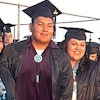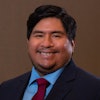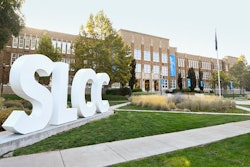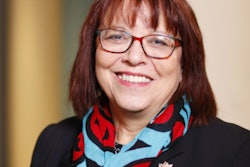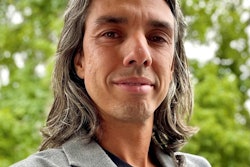NEW YORK — Sandra Begay-Campbell, who served as a regent at the University of New Mexico from 2001 to 2005, moved many higher education students and leaders to tears at a session during the National Conference on Race and Ethnicity in American Higher Education in New York City on Saturday.
Recounting her experiences growing up on a Navajo reservation in New Mexico, the isolating effects of academia on minority students, and the difficulties she has encountered as a female engineer, Begay-Campbell struck a chord with the women in the room and imparted sage advice.
She started off by sharing a story about how going to a predominantly White college the first semester of freshman year greatly affected her emotional well-being and nearly set her up for failure. After an initial bad experience, she returned home to attend a community college that allowed her to excel.
“As we’re dealing with minority students who are in the start of our higher education system, you’re going to see many of those aspects: the culture shock, not having a cohort to tie them together to help support them when they are taking a hard curriculum,” she said. “We’re hoping to give them the answers to guide them, but we also need to set them up for success.”
Small class sizes, the backing of family, cheaper tuition, and familiar professors all helped Begay-Campbell finally get off her feet. After attending the University of New Mexico Gallup branch campus for two years, she went on to earn a bachelor’s from the school’s main campus and a master’s from Stanford University.
While her culture and the comforts of home gave her strength, Begay-Campbell said certain aspects of her background created difficulties as a minority woman in higher education.
Growing up in an underserved community, she said, doesn’t lend itself very well to going after a degree in higher education. Not only did she receive discouraging comments about whether she could become the engineer she wanted to be, but being the only female American Indian through most of her career at the university or in the workplace has often been a challenge.
“The statistics and the numbers that you hear are not helping us to grow,” she said.
At the same time, “we can be our own worst enemy,” she said, noting how chronic health problems in minority communities—alcoholism, drug addiction, heart disease, high blood pressure, and diabetes—have crippled many from reaching their full potential.
Now that she has served as a leader in higher education and has started working at the Sandia National Laboratories to bring energy to disenfranchised parts of her community, Begay-Campbell says her focus is on instilling hope in young American Indian engineers and creating systemic change. She currently works with American Indian interns to install wind turbines and solar panels on reservations to provide electrical power and create an infrastructure.
“With electricity, an elderly woman with diabetes could keep a fridge to store her insulin,” said Begay-Campbell. “I have no notions of taking over the world, but I do have aspirations of making significant change.”
With a new University of New Mexico president taking the helm, Begay-Campbell has also spoken to the school’s Native American Studies department to let its goals and directives be known to the college’s new leader.
“I’ll be honest—he doesn’t know a lot about Native Americans,” she said. “Opportunity! Get in that door and tell him. Find out how you can influence and then strategize and plan it out.”
At the close of the conversation with Begay-Campbell on women in leadership, University of Phoenix Navajo doctoral student Lisa Brown spoke up and said she was inspired by Begay-Campbell’s remarks, adding that it was difficult growing up in a matriarchal society without the presence of her mother.
“I may not have had a lot of the privileges that my classmates had, but I can be confident in what I can offer,” said Brown. “Honestly, I see a mother in you,” she said of Begay-Campbell.

